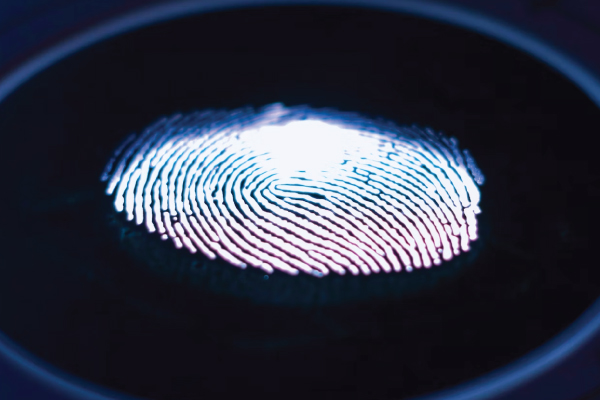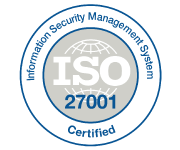Voir ce qui est tendance dans l’industrie des vérifications des antécédents
The Process of Identity Checks: Ensuring Trust in a Digital Age
 In today’s interconnected world, the significance of robust identity checks cannot be overstated. Whether in the case of accessing bank accounts, making online purchases, or even entering a high-security zone, verifying one's identity remains crucial to ensuring safety, trust, and legitimacy. Companies and organizations often need to do identity checks on prospective employees, vendors, partners, or clients as part of their ongoing background check processes. But how are these checks carried out? Let's delve into the intricate process.
In today’s interconnected world, the significance of robust identity checks cannot be overstated. Whether in the case of accessing bank accounts, making online purchases, or even entering a high-security zone, verifying one's identity remains crucial to ensuring safety, trust, and legitimacy. Companies and organizations often need to do identity checks on prospective employees, vendors, partners, or clients as part of their ongoing background check processes. But how are these checks carried out? Let's delve into the intricate process.
Physical documents: In the past, identity verification was primarily document-based. These physical documents are still important in many situations, but with the growth of digital platforms, there has been a substantial shift toward electronic verification. Essential physical documents include:
- Passports: Widely recognized and accepted globally and contain the owner’s personal details, nationality, and facial photograph.
- Driver's licenses: A driver’s license can verify your name, address, and driving qualifications.
- National ID cards: Specific to certain countries that issue them, they serve as proof of identity and, sometimes, citizenship.
 Biometrics: Biometric verification is based on individuals’ unique physical or behavioral attributes. Common biometric methods include:
Biometrics: Biometric verification is based on individuals’ unique physical or behavioral attributes. Common biometric methods include:
- Fingerprint scanning: Used in smartphones, some laptops, and visa application processes.
- Facial recognition: Often found in modern smartphones and security systems.
- Iris and retinal scanning: Used in high-security areas and are among the most accurate biometric methods.
- Voice recognition: Increasingly used in customer service and virtual assistant applications.
- Signature recognition: A person’s handwritten signature can be used as a means of verifying their identity.
Digital verification: With the surge in online transactions and interactions, digital identity checks have gone mainstream. The following methods use data to verify identity:
- Two-factor authentication (2FA): After entering a password, users receive a one-time code on a registered device, ensuring an added layer of security.
- Knowledge-based authentication (KBA): Users answer “secret questions” that supposedly only they would know the answer to (although some have questioned the safety of this method, as many of the most commonly suggested secret questions can involve information that could potentially be publicly accessible).
- Digital ID apps: These apps store personal data and share it securely with services that require verification, avoiding the need to enter data multiple times.
Blockchain and decentralized identity verification: Emerging technologies like blockchain promise decentralized identity checks. Users have a digital identity stored on a blockchain, which, when accessed, provides a secure and tamper-proof verification method without relying on a centralized authority.
 The Challenges of Identity Checks
The Challenges of Identity Checks
While identity checks have evolved significantly, challenges nevertheless persist. For instance, how can one confirm that the document being shown is not forged? In the process of digital verification, how do service providers ensure that the person on the other side of the screen is genuine and not using stolen data?
That is where companies specializing in identity verification come into play. They deploy advanced technologies and algorithms to cross-check details, analyze patterns, and ensure that the person claiming a certain identity is genuine.
Identity theft has been a growing issue in recent years, with reported instances of identity theft in the USA rising from slightly over 100,000 in the first quarter of 2017 to over 500,000 in the first quarter of 2021. Companies and organizations thus need to implement proper identity verification processes to mitigate the risks posed by this concerning trend.
ISB Global Services Offerings
ISB Global Services has a proven track record of providing comprehensive identity verification solutions, ensuring that businesses can operate with confidence knowing that their identity checks meet the highest standards of security and integrity. Their services blend the best of traditional methods with cutting-edge technologies to provide seamless, accurate, and fast identity verification processes. As the world becomes increasingly digital and interconnected, the importance of reliable identity checks will continue to grow. While the methods evolve, the core principle remains the same: ensuring trust and safety in every transaction and interaction. Whether you’re a business looking to onboard new clients or an institution ensuring that only authorized personnel gain access, ISB Global Services stands ready to provide the assurance you need in an ever-evolving identity verification landscape.



